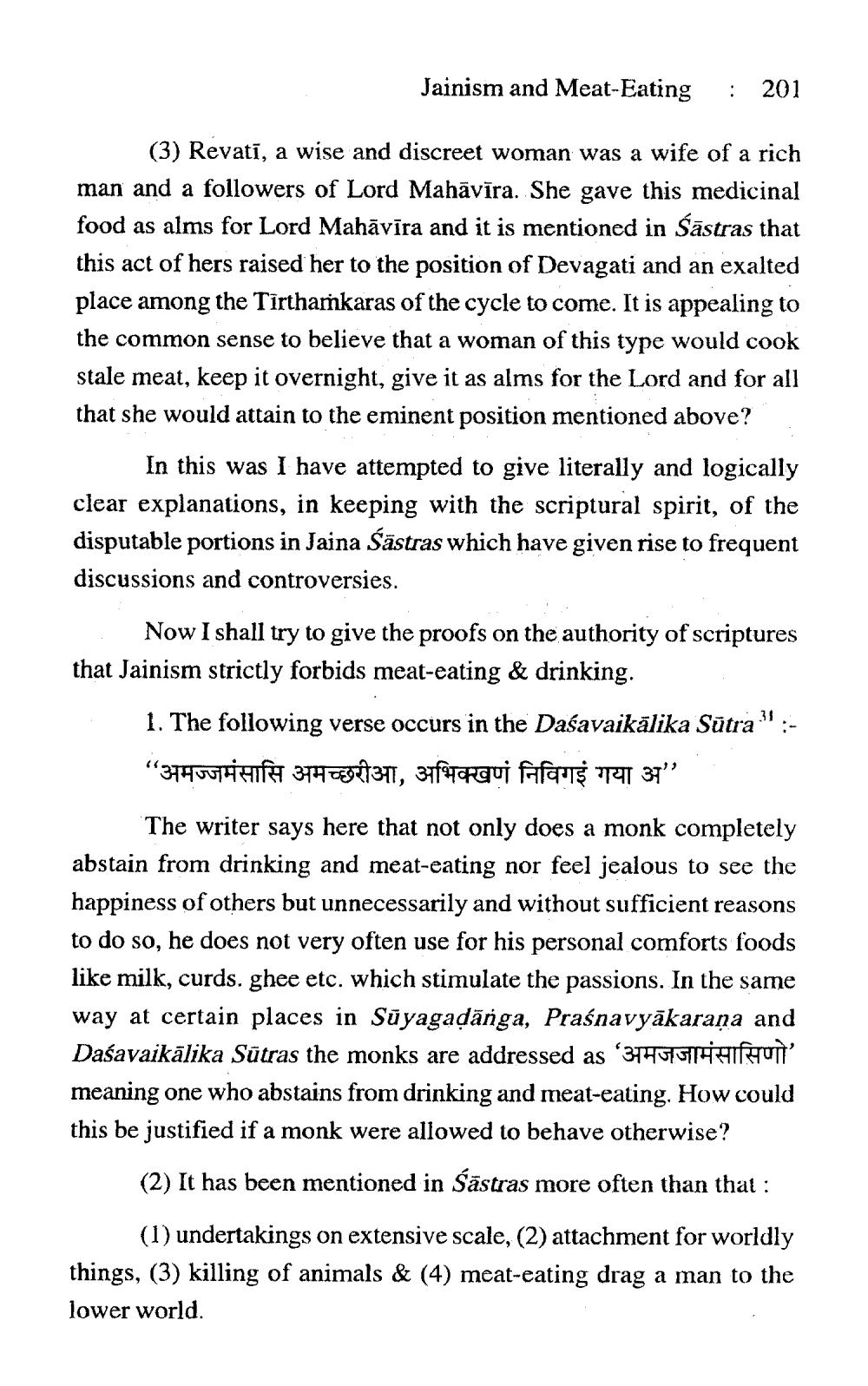________________
Jainism and Meat-Eating : 201
(3) Revati, a wise and discreet woman was a wife of a rich man and a followers of Lord Mahāvīra. She gave this medicinal food as alms for Lord Mahāvīra and it is mentioned in Śāstras that this act of hers raised her to the position of Devagati and an exalted place among the Tirthamkaras of the cycle to come. It is appealing to the common sense to believe that a woman of this type would cook stale meat, keep it overnight, give it as alms for the Lord and for all that she would attain to the eminent position mentioned above?
In this was I have attempted to give literally and logically clear explanations, in keeping with the scriptural spirit, of the disputable portions in Jaina Śästras which have given rise to frequent discussions and controversies.
Now I shall try to give the proofs on the authority of scriptures that Jainism strictly forbids meat-eating & drinking.
1. The following verse occurs in the Daśavaikālika Sūtra11 "अमज्जमंसासि अमच्छरीआ, अभिक्खणं निविगई गया अ"
The writer says here that not only does a monk completely abstain from drinking and meat-eating nor feel jealous to see the happiness of others but unnecessarily and without sufficient reasons to do so, he does not very often use for his personal comforts foods like milk, curds. ghee etc. which stimulate the passions. In the same way at certain places in Suyagaḍānga, Praśnavyākaraṇa and Daśavaikālika Sutras the monks are addressed as 'अमजजामंसासिणो' meaning one who abstains from drinking and meat-eating. How could this be justified if a monk were allowed to behave otherwise?
(2) It has been mentioned in Sastras more often than that:
(1) undertakings on extensive scale, (2) attachment for worldly things, (3) killing of animals & (4) meat-eating drag a man to the lower world.




